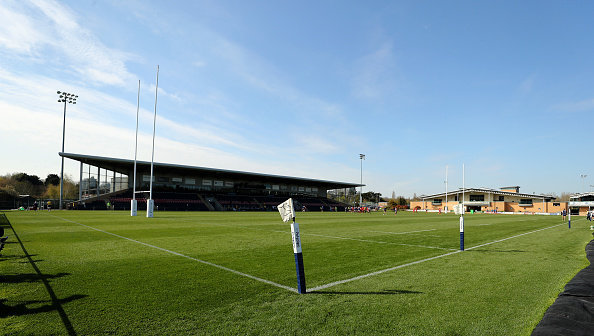Explainer: Why have Championship rugby clubs been denied promotion?

“Disappointed, dismayed and disheartened,” is how Championship rugby leaders Doncaster Knights reacted to news this week that they will not be promoted even if they win the league.
The Knights were joined by Ealing Trailfinders in being denied entry to the Premiership, English rugby’s top division, for failing to meet a series of off-field criteria.
The duo were the only clubs who applied to be audited by an independent board but failed because their stadium capacities did not meet the minimum number of 10,000.
But key questions remain. Where does the 10,000 figure come from? What can the clubs do about it? What will the Premiership look like next season? And will this season’s Championship be left with a redundant set of games?
10,000
The Professional Game Board are the standard setters in this case and use the Sports Ground Safety Authority (SGSA) to designate what counts as a suitable sports ground.
The SGSA describes a suitable – or designated – stadium as a ground, in the opinion of the Secretary of State for Digital, Culture, Media and Sport, able to accommodate more than 10,000 spectators.
However, there is an exception to the rule whereby Premier League and English Football League stadiums only need to reach a threshold of 5,000 – something both Ealing and Doncaster have been proven to do.
This therefore raises the question as to why various rugby bodies haven’t publicly lobbied the SGSA for changes to their regulations using top-flight football as a precedent.
The Safety of Sports Grounds Act 1975 states that grounds can be deemed designated by a local council with the approval of the Secretary of State.
It seems, therefore, that it would be at least possible to request change.
What can Championship clubs do?
Well, besides the outpouring of anger from Championship clubs, players and fans, there’s little anyone can do bar appeal and suddenly fit the criteria.
If the sticking point really is the stadium size then both Ealing and Doncaster would be able to appeal on the basis they can ground-share with other clubs or find alternative arrangements.
Ealing had arrangements in place last year if they were to get promoted and Doncaster had previously deemed a ground-share with the town’s football club as an alternative.
But the issue in this circumstance comes when bodies want clubs to be sustainable – despite the majority of Premiership clubs making losses pre-pandemic – yet also wish them to find bigger facilities that they may not fill, potentially adding costs that prove an unsustainable burden. Meanwhile, governing body the RFU has cut funding to Championship clubs significantly.
Next year
The RFU told City A.M. this week that: “Promotion from the Championship is the route to a 14-team Premiership so for next season it will be 13 teams, as it is this season.
“The opportunity for promotion will be available again next season. The deadline to submit applicants to be assessed is known by the clubs and that has passed for this year.”
Alas, it looks like we will be seeing another year of no relegation from the top flight, with just the slim chance of promotion – unless something happens through either an unforeseen plan or an appeal.
Some disgruntled fans have compared the situation to a cartel. Doncaster took issue with the principle and process behind this week’s decision.
“Sensibility and fairness dictate that a delay to a decision being made could have been better for all concerned,” the club said.
“Now, the teams play the final matches of a season in an atmosphere of despondence, albeit an administrative box has been ticked.”